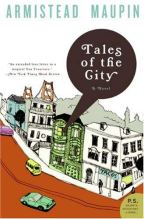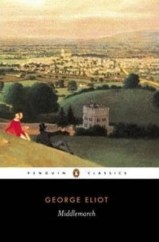Six degrees from San Francisco
Time for another round of Six Degrees of Separation in which the idea is to form a chain of connections from a starting book.
 This month our master Kate wants us to begin with Tales of the City by Armistead Maupin, the first of his books in a saga based in San Francisco. This isn’t a book I’ve read though I did start to read the first in the series once. I know its hugely popular but it wasn’t to my taste.
This month our master Kate wants us to begin with Tales of the City by Armistead Maupin, the first of his books in a saga based in San Francisco. This isn’t a book I’ve read though I did start to read the first in the series once. I know its hugely popular but it wasn’t to my taste.

So I’m switching to a different city for my first book.Beauty and Chaos: Slices and Morsels of Tokyo Life is a collection of articles in which journalist and university professor Michael Pronko reflects on the character of this city. He considers the idiosyncracies of its inhabitants and their predilection for maps, drink vending machines, noodles and posh shopping bags. It’s a fascinating exploration of facets of a city that tourists would be unlikely to see or understand.

From there it’s an easy leap to a different representation of Toyko, this time seen through the eyes of the Japanese author Haruki Murakami. Norwegian Wood takes us into the world of the city’s nightclubs, bars and even a porn cinema, a world that provides a wonderful contrast to the books other setting of a sanitorium in Kyoto surrounded by snow-clad hills. It was my first – and to date only – experience of Murakami’s work and as far as I can tell isn’t typical but I was so glad a colleague recommended it to me.

But enough of the Japanese landscape, let’s move to somewhere closer to home which also boasts some fine specimens of trees though I’m not entirely sure what kind of tree Thomas Hardy had in mind with his novel Under the Greenwood Tree. An English oak I suspect. This novel is a celebration of the pastoral life in the Victorian era but although Hardy shows this in terms of continuity and harmony there are points at which the plot involves a confrontation between the old and new orders. The Mellstock choir, for example, which provides one of the two plot lines, are threatened by the vicar’s attempt to replace them with a new mechanical church organ.

The clash of new and old also figures in the novel that is probably the finest example of mid nineteenth century realist fiction: George Eliot’s Middlemarch. This is novel that teems with ideas, about relationships, ambition, social mobility, integrity to name just a few. But Eliot also showed a new spirit of the age with political reformers going head to head against the established gentry, how ambitious young doctors with their antipathy to blood-letting were seen as upstarts and how the new railway age was feared by rural workers. You won’t find a finer novel…..
 I wonder what Hardy and Eliot would have made of my next book? Harvest by Jim Crace is also about disruption to the rhythm of the countryside. Crace isn’t sentimental about rural life but he show that the pursuit of “Profit, Progress, Enterprise” is dangerous. The threat in his novel comes in the form of enclosure of common land where, for generations, villagers have tended to their flocks. But their lord and master decides they’ll be more profitable if he turns them over to crops – throwing the villagers out and leaving them without a source of income. This is a novel which verges on poetry at times when it speaks about the connection of man and his environment. I don’t understand why the Booker judges overlooked this for the prize in 2013.
I wonder what Hardy and Eliot would have made of my next book? Harvest by Jim Crace is also about disruption to the rhythm of the countryside. Crace isn’t sentimental about rural life but he show that the pursuit of “Profit, Progress, Enterprise” is dangerous. The threat in his novel comes in the form of enclosure of common land where, for generations, villagers have tended to their flocks. But their lord and master decides they’ll be more profitable if he turns them over to crops – throwing the villagers out and leaving them without a source of income. This is a novel which verges on poetry at times when it speaks about the connection of man and his environment. I don’t understand why the Booker judges overlooked this for the prize in 2013.

They also (equally unbelievably) overlooked my final book in this chain. Madeleine Thien’s Do Not Say We Have Nothing takes us to China in the build up to the protest and subsequent massacre at Tianenman Square, Bejing in 1989. This is the background against which she sets her tale of three highly talented musicians whose lives are turned upside down when the Communist-led government decides their music is not appropriate to the new order. This is a novel that is breathtaking in its scope. If you enjoyed Wild Swans: Three Daughters of China by Jung Chang, then I highly recommend Thien’s novel.
And with that we’ve returned to a city landscape though one that couldn’t be more different than San Francisco. We’ve also had a little sojourn in English woods and fields. Where would your chain have taken you?


I like that we both included Norwegian Wood, albeit different varieties!
Thank you for the reminder of the Thien – I had meant to add this to my TBR stack when it came out and never did… it has been added!
I recently for hold of Under The Greenwood Tree as I was assured it wasn’t the usual level of Hardy misery. Pastoral sounds good!
I enjoyed both the first and last book in your chain. Thien’s would have been a worthy winner; she did win a couple of the major Canadian literary awards though. I’m rereading her short stories just now: very gentle and poignant too. (Although I know you’re not fond of collections overall, so I’m not saying so just to tempt you. :))
One of these days I will read Middlemarch. I own it. Do Not Say We Have Nothing is one of my all time favorite books. I enjoyed your journey!
I particularly like your leap like your leap from Murakami to Hardy. I’ll be adding Beauty abd Chaos to my list – thanks for that.
it was a bit of an odd leap but I was in desperation!
I’ve read two of these books – the Hardy and the Eliot, loved them both, especially Middlemarch. Harvest sounds an interesting novel and also Do Not Say We Have Nothing – I did enjoy Wild Swans.
Harvest is beautiful. The time period in which its set isn’t specified so the novel thus has a timeless quality
I was going to the library yesterday to pick up a book I’d reserved and had a quick look on the shelves for Harvest – and there it was! That as lucky.
Well I hope you like it now that I ‘persuaded’ you to get it….
Nice chain! I’ve read most of these, but am ashamed to say I’ve yet to read Middlemarch, an oversight I must rectify forthwith!
Well I hope you get to Eliot at some point. Some readers find it slow and indeed it can be initially but once the characters have been established then it just gets better and better
Hardy and Eliot – two of my favourite books – I agree, you won’t find a finer book:)
I haven’t read Harvest, it sounds like one I might like. The summary makes me think of that other Booker nominee Elmet, which was also about how modern economics impacts on time-honoured ways of making a living.
I think you would enjoy Harvest indeed Lisa.